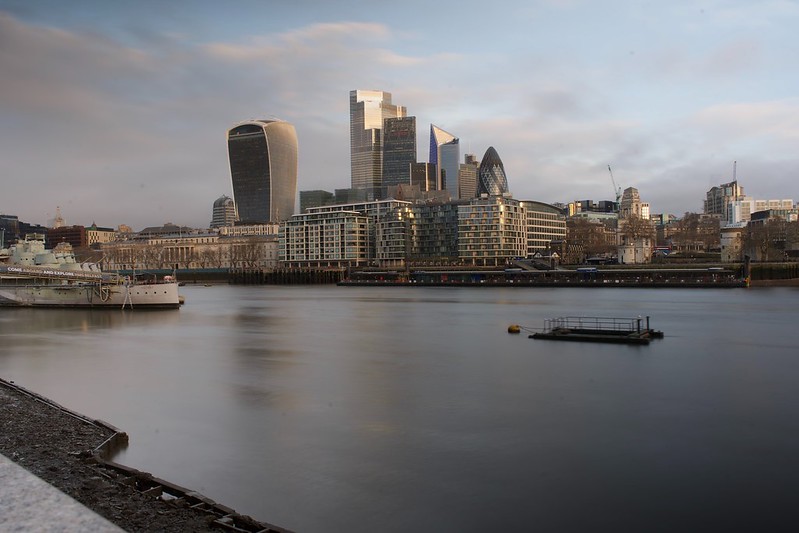
The Mayor of London, Sadiq Khan, will today unveil a bumper package of measures worth more than £544 million to kickstart London’s recovery from the coronavirus
pandemic as he brings together leaders and key London organisations at his inaugural Recovery Summit.
Sadiq has put revitalising high streets, supporting communities and boosting jobs at the centre of his plan to rebuild the capital as a fairer, cleaner and greener city with a better long-term future for Londoners. Today, he is announcing:
- As part of an ongoing programme working with City Hall, utility companies in London will bring forward an additional £499m of investment – on top of the £1.5bn announced last year – creating over 1,400 jobs, with programmes to support jobs for younger Londoners, and those from BAME backgrounds. City Hall are also supporting companies in their endeavour to unlock a further £346million worth of green recovery proposals from regulators, with a potential additional 250 jobs.
- £32m Good Work Fund to support Londoners from the next academic year to gain the skills they need to support London’s recovery, such as for jobs in the green, health and social care, creative and digital sectors. This is in addition to the £318m (AEB) available for the 2021/22 academic year, which will help to support London’s recovery programme.
- £5m of investment from the European Social Fund to support unemployed people into work and help those in-work to improve their skills at higher levels and progress into better jobs.
- A £4m High Streets for All Challenge that will invite Londoners and boroughs to come up with ideas for how high streets could change to meet the needs of a post-Covid world.
- £3m allocated to Future Neighbourhoods 2030, a project that will support two to four neighbourhoods to transform their local environments, tackle climate change and air pollution, and prepare them for a zero-carbon future. Selected Future Neighbourhoods will be located in London's most disadvantaged or climate vulnerable areas, or areas where residents have been most severely affected by the pandemic.
- £1m investment for the fifth tranche of London Community Response fund, which will provide grants of up to £50,000 for voluntary and community sector organisations to support the recovery and renewal of London’s communities over a year from April 2021.
- £500,000 from the Make London programme to match-fund projects led by communities to help improve public spaces, promote grass-roots culture and bring people together safely – including by securing new uses for vacant high street shops and creating new walking routes.
- £150,000 from the Community Led Recovery Programme for 35 small, grassroots community organisations across London, giving groups the opportunity to collaborate with decision makers to reimagine London as a fairer, greener and more resilient city than it was before.
- £90,000 from the Advice in Community Settings grant programme to support the development of up to 10 school-based partnerships and five community food-based partnerships.
- The Civic Futures programme will work with 30 of London’s most innovative and embedded leaders from civil society and local government to explore the current challenges facing London’s communities and develop strategies for the city’s recovery.
- A toolkit for civil society organisations to empower communities and support stronger relationships across local areas through London’s recovery.
- An open call for innovations that will help to address London’s recovery challenges via ChallengeLDN
The London Recovery Summit will showcase the work of the London Recovery Board, chaired by Sadiq, which brings together representatives from the Government, local authorities, the NHS, universities and colleges, trade unions, business, the voluntary sector and community groups.
In addition, for the first time in London’s history, some of the city’s biggest organisations will today commit to working together by using their procurement and recruitment power to maximise employment opportunities and help young people to flourish. A special group, chaired by the London NHS, has developed London’s first ever city-wide Anchor Institutions’ Charter, which is published today and signed by:
- NHS London
- TfL
- London Fire Brigade
- The Metropolitan Police
- The University of London
- The Association of Colleges
- The London Chamber of Commerce and Industry
- Film London
- The Trades Union Congress, London, East and South-East
- The Church of England
- The London Jewish Forum
- The Muslim Council of Britain
These major organisations - who between them employ over 490,000 people and spend over £73bn a year in London - have committed to help the capital recover from the pandemic by targeting job opportunities and support to Londoners most impacted by the virus and the economic fallout of the last year.
This work on anchor institutions is part of a growing focus by cities on what is sometimes called Community Wealth Building. It has been tried in various cities in the USA and in Preston in the UK. It is a means by which cities can take radical steps to address inequality and boost their local economy by having the biggest employers work together. The work in London has been supported by Bloomberg Associates, who say that London is by far the biggest and most important international city to attempt to coordinate the spending and recruitment powers of anchor institutions in this way. Today’s charter represents an important commitment and Bloomberg is now working with major London anchor institutions to develop detailed plans to be revealed later this year.
The Mayor is now calling on the Government to step up and match his ambitious plans for the capital, warning that the success of the nation depends on it.
The Mayor of London, Sadiq Khan, said: “I am hosting the Recovery Summit to bring together London’s leaders and communities and kickstart this great city’s recovery from the devastating Covid-19 pandemic.
“We owe it to everyone who has lost their lives, to the key workers who have done so much to keep us safe, and to all those who have suffered to ensure that we build an even better London after the pandemic. This is the moment to tackle the deep-seated structural inequalities that have long scarred our city and to rebuild London as a fairer, greener and more prosperous city.
“Jobs and investment are crucial to getting our city going again, which is why today I’m unveiling a package of measures worth hundreds of millions of pounds that will create jobs and improve the places where we live and work. We are also working with some of the biggest employers in the capital to target job opportunities to where they are needed the most.
“It is unacceptable that despite the capital being a massive generator of wealth for this country, London also has some of the most deprived communities of anywhere in the country, with stark inequalities, made even worse by the pandemic. So I’m calling on the Government to match my ambitious plans as a starting point. By failing to fund and support the capital, the Government faces the real risk of undermining a national recovery.”
NHS Regional Director for London, Sir David Sloman, said: “We are extremely grateful to the Mayor for convening this summit at this incredibly challenging time. The NHS has been on the front line fighting against the pandemic and protecting Londoners’ health – and we’re privileged to play a major role in supporting the capital’s recovery.
“The pandemic has shown how London’s major institutions can work together to meet our city’s collective needs. This Charter brings some of those leading institutions and employers together to commit their resources to make our vision for a better London beyond the pandemic a reality, and we are proud to be at the forefront of this effort.”
David Hughes, Chief Executive, Association of Colleges, said:
“As the representative body for colleges, AoC is ready to play its part in making sure London’s economy and communities are stronger and fairer than ever before. We are committed to working with other London partners and colleges to offer solutions to the challenges presented by the pandemic. We want to close inequality gaps that have been exacerbated by the pandemic and give young people and adults training and skills which help them secure good work to better their lives.
“No one single organisation will be able to meet every need which is why it is so significant that London’s leaders are joining forces as anchor institutions. Londoners of all ages, but particularly those starting out in their careers and those made redundant face a tough labour market so our collective efforts are crucial to meet the urgency of ensuring no one is left behind. If channelled effectively and cohesively, our collective resources and efforts could see a step change in opportunities for those that need them most.”
Gordon Innes of the Bloomberg Associates Economic Development Team, said: "The London Recovery Board is a preeminent global example of Mayoral leadership to work collaboratively and to respond to local need. Bloomberg Associates works with municipal governments around the world to help improve the lives of their residents and we are privileged to support the Board’s Anchor Institutions Initiative. This Initiative brings together London’s major institutions, from hospitals to colleges, to advance equitable, inclusive and collaborative strategies to help the organizations and London build back better. As the largest and most international city to attempt such an initiative, London is taking a bold step on the road to recovery," said Gordon Innes of Bloomberg Associates.
Sarah Bentley, Thames Water’s chief executive officer, said: “I’m really excited to be working with the Mayor and other stakeholders as we come together to rebuild London in a positive and more sustainable way after the devastation of the pandemic, supporting the work of the London Recovery Board and the Green New Deal.
“At Thames, we’re investing £1 billion in London between 2020 and 2022 to improve our essential service to customers, support communities and protect the natural environment, including investment in green energy. To support this we plan to create 500 new jobs this year.
“To help people looking for work, and to make sure our workforce represents the diversity of our region, we’ve got lots of new initiatives in place, such as tripling the number of apprentices we recruit, supporting BAME communities through schemes like the Black Interns programme and the GLA WIN Design Lab programme, and creating new placements for young people who are out of work.”
Adrian Wootton OBE, Chief Executive of Film London and the British Film Commission, said:
“Film London is committed to the actions in this Charter. With demand for London and UK-produced films, TV series, video games and animation booming, our sector has a real opportunity to offer exciting, new jobs right now. From electricians to set designers, camera operators to producers, we will do all we can to ensure young Londoners can access the training and jobs available in our £3bn screen industries.
“I also welcome the joint commitment from London’s other major employers to work together; collaboration is essential for our city’s recovery.”



































